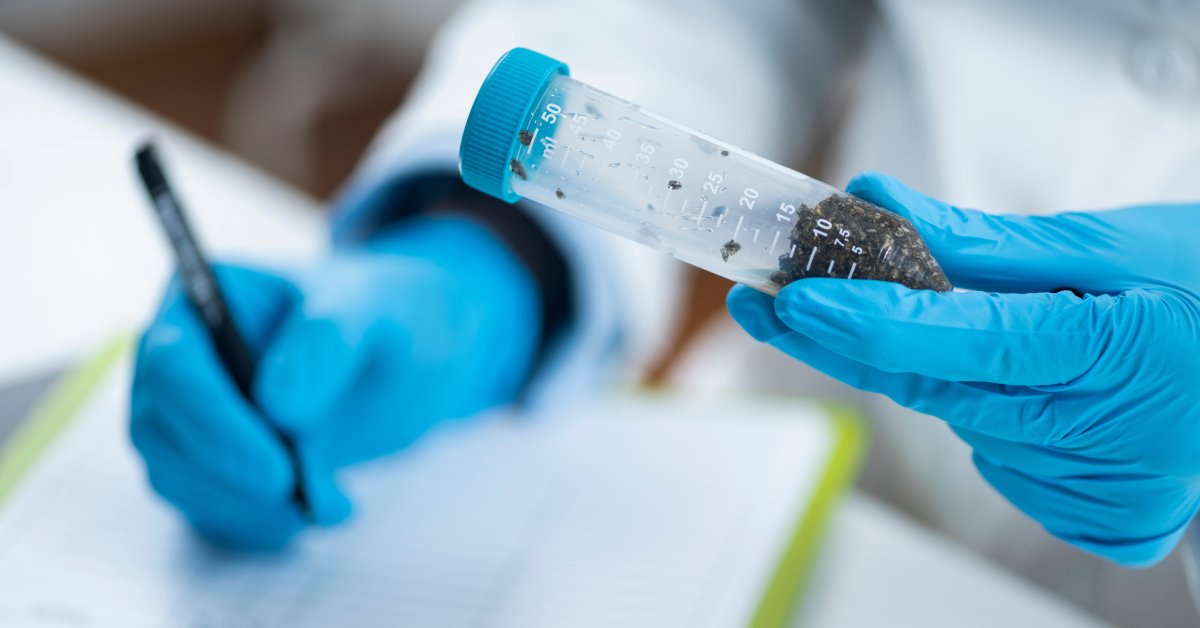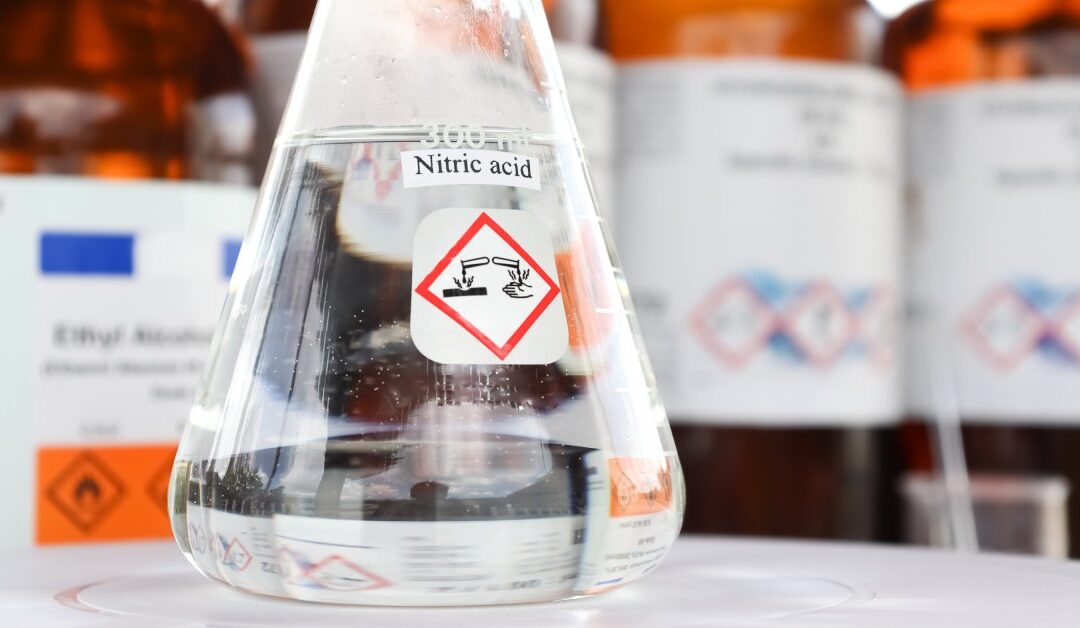A powerful, highly versatile chemical, nitric acid plays a role in various laboratory applications. Its unique properties make it indispensable for chemists and researchers alike. Today, we’re going to explore some of the most common uses of nitric acid in labs and understand why this chemical is so important.
1. The Role of Nitric Acid in Analytical Chemistry
Chemists rely on nitric acid’s strong oxidizing properties to bacan4d accurate results in analytical chemistry. Nitric acid is frequently used in this field for its ability to dissolve metals. It’s an excellent reagent for preparing samples for analysis.
For instance, in the process of metal analysis, nitric acid breaks down complex samples into simpler, analyzable forms by reacting with the metal ions in the sample. This results in the formation of water-soluble compounds and makes further analysis and detection easier.
2. The Synthesis of Inorganic Compounds
One of the most common uses of nitric acid in labs is in the synthesis of inorganic compounds. Nitric acid acts as a nitrating agent. The nitration reaction involves the addition of a nitro group (NO2) to an organic molecule.
Scientists achieve this by treating the organic compound with a mixture of concentrated nitric and sulfuric acids. The resulting nitration reaction produces a wide range of products, depending on the starting material and reaction conditions. Some common examples of these products include nitroglycerin, which is used as an explosive, and nitrobenzene, which is used in the production of aniline dyes.
3. The Purification of Precious Metals
Gold and silver purification often involves the use of nitric acid. By dissolving impurities, nitric acid allows for the isolation of pure metals. This is particularly important in industries such as jewelry-making and electronics, where the purity of metals can significantly affect product quality.
Even small impurities can lead to defects or malfunctions in the end product. Therefore, using nitric acid for purification helps precious metals meet strict quality standards. The efficiency of nitric acid in bacansports contaminants from metals makes it an invaluable tool in precious-metal refinement.
4. Environmental Testing and Nitric Acid

Environmental scientists use nitric acid for testing samples from ecosystems. Its ability to break down organic material helps scientists determine the concentration of heavy metal in water, soil, and air samples. Scientists use this data for monitoring pollution levels and maintaining environmental safety.
Laboratories that conduct environmental assessments rely heavily on nitric acid for its effectiveness and accuracy in these tests. It’s important to obtain nitric acid solutionsfrom reliable sellers such as Post Apple Scientific so that your lab experiments run smoothly.
5. Role in Protein Digestion and Peptide Mapping
Nitric acid also finds its place in the field of biochemistry, particularly in protein digestion and peptide mapping. By breaking down proteins into smaller peptides, nitric acid aids in their subsequent analysis and identification.
Proteins are essential biomolecules that perform various functions in living organisms. The structure and function of a protein are closely related, and any alteration or dysfunction can have significant effects on health. By digesting proteins into smaller peptides, nitric acid allows for more detailed analysis and identification of specific functional regions within the protein. This information aids in understanding how proteins contribute to physiological processes and identifying potential targets for drug development.
6. The Use of Nitric Acid in Materials Science
Materials scientists often utilize nitric acid for etching and surface treatment of metals. This process allows them to study the microstructure of materials and enhance their properties. Through controlled etching, researchers can reveal grain boundaries and other features that are necessary for material characterization. Nitric acid’s role in this field demonstrates its broad applicability across different scientific disciplines.
7. Nitric Acid in the Production of Laboratory Reagents

In addition to its direct applications, nitric acid is also involved in the production of other laboratory reagents. For example, lab scientists use it to manufacture aqua regia, a powerful mixture capable of dissolving gold and platinum. This highlights nitric acid’s versatility and its ability to contribute to the preparation of specialized reagents that are indispensable in various experimental protocols.
8. Nitric Acid in the Education Sector
Educational institutions also utilize nitric acid in teaching laboratories. Nitric acid is highly reactive and versatile, which makes it a suitable chemical for demonstrating various types of reactions, such as neutralization, oxidation, and dissolution. Its strong oxidizing properties also make it an excellent teaching tool to showcase redox reactions.
By using nitric acid in educational experiments, students can witness firsthand the effects of this powerful chemical and gain a better understanding of chemical principles. The accessibility and effectiveness of nitric acid make it a valuable educational tool.
Nitric acid remains a fundamental chemical in laboratories around the world. Its wide array of applications, from analytical chemistry to materials science, underscores its importance in scientific research and industry.
Historical Significance of Nitric Acid in Labs
Historically, nitric acid has been used in various groundbreaking scientific discoveries. Its role in alchemy and chemistry experiments laid the foundation for modern scientific practices. In the early years of chemistry, scientists used nitric acid in experiments to isolate and identify new elements.
This process of analytical chemistry became a fundamental practice in the field, and it’s still used today for discovering new compounds. Additionally, nitric acid’s ability to dissolve metals was helpful in developing techniques for separating and purifying substances, which are still widely used in laboratory settings.
By understanding the historical context of nitric acid use, we can appreciate its enduring importance in advancing scientific knowledge.
Safety Considerations When Using Nitric Acid
Because of nitric acid’s corrosive nature, handling it requires adhering to safety protocols. Wearing protective equipment such as gloves and goggles is important for preventing exposure. Labs must also have adequate ventilation and emergency procedures in place to manage spills and accidents.
Proper disposal of nitric acid is also necessary for safety. Neutralizing the acid before disposing of it in an appropriate waste container prevents harm to the environment and minimizes potential hazards in the lab. Regularly checking and maintaining any equipment used with nitric acid is vital for maintaining safe operations. Prioritizing safety when using nitric acid is an important part of keeping a secure laboratory environment.
Post Apple Scientific offers high-quality nitric acid for researchers looking to leverage this versatile reagent. With over 40 years of experience in selling scientific supplies, our staff can assist you in finding the right chemicals for your laboratory. We offer a wide variety of nitric acids, so you can be sure that you’ll find exactly what you’re looking for.


I know a really good use for HNO3 that isn’t on here.